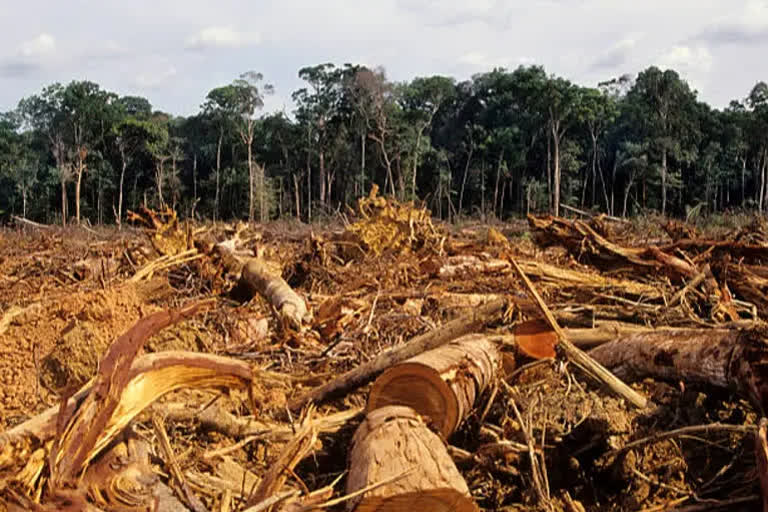Rome [Italy]: According to a new analysis by researchers at the Alliance of Bioversity International and CIAT, deforestation worldwide proceeded more or less as anticipated from the trends established over the last 15 years, despite the significant upheavals in the first year of the COVID-19 pandemic. Researchers analysed historical deforestation data (2004-2019) from the Terra-i pantropical land cover change monitoring system to forecast expected deforestation trends for 2020 in the publication "Has global deforestation accelerated due to the COVID-19 pandemic?" released in mid-November 2022.
Determining whether deforestation observed in 2020 deviated from expected trajectories after the first COVID-19 cases were reported required analysis of tree cover loss over time, both at the regional and national levels for the Americas, Africa, and Asia, as well as for Brazil, Colombia, Peru, the Democratic Republic of the Congo, and Indonesia.
"It was not particularly surprising to see little change," said Janelle Sylvester, who is the corresponding author of the study and a Research Fellow at the Alliance. She said that deforestation rates likely did not drastically change for many reasons. For one, it is probable that the complex dynamics driving deforestation before the pandemic persisted unimpacted by the lockdowns.
"For example, illegal deforestation in areas where there was minimal state (governmental) presence before the pandemic would likely continue during lockdowns," she said. Furthermore, she added that "national economic stimulus packages combined with global macroeconomic dynamics connected to changes in demand and supply could have balanced out economic pressures that were being placed on forests."
Louis Reymondin, who co-leads the Alliance of Bioversity International and CIAT's research theme on the digital transformation of agri-food systems, added that the results weren't unexpected given that livestock grazing is a major driver of deforestation and that demand for those products persisted throughout the 2020 lockdowns.
Also read: New technology maps detailed movement of microscopic algae, crucial for ocean health
"There were changes in food consumption habits, but usually it was towards processed foods and a reliance on industrialized agriculture," he said, "The disruption needed to stop deforestation is about changing consumer behaviour, changing the food system... and that's something that countries and governments and scientists are trying to push forward."
The study's lead author, Jonathan Cespedes, who was also a research assistant for the Alliance of Bioversity and CIAT during the study and is currently a second-year PhD student at the Institut Polytechnique de Paris, explains that his task was to assess deforestation and COVID-19 data in order to identify potential relationships between the two variables.
The spatial scale of this study is worldwide, so it is important to keep that in mind. The next step is to assess sub-national and local sizes, where the outcomes may change, Cespedes added. Sylvester said that to get a genuine snapshot of the impact, more research would be required, as national economic recovery efforts in response to the pandemic may have longer-term effects on deforestation that are not captured in this study limited to 2020.
"All in all we see that deforestation trends in most countries followed their expected trajectories; however, to really understand the effects of the pandemic on deforestation we will have to look at a longer time period, say three years or more, in order to understand how national economic recovery efforts impact forest cover," Sylvester said. (ANI)
(This story has not been edited by ETV Bharat and is auto-generated from a syndicated feed.)



